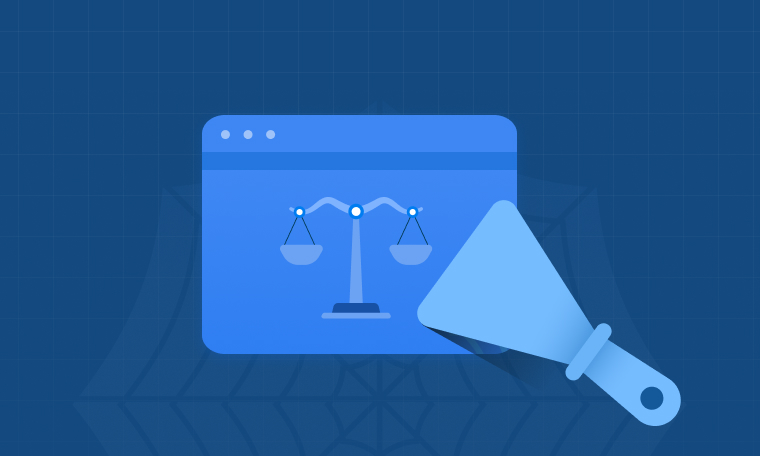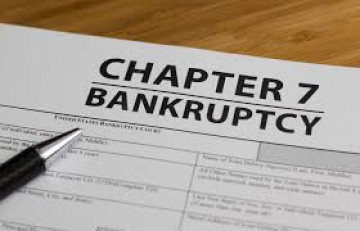Understanding Unauthorized Data Scraping and Its Legal Implications in the U.S.
In the modern, digitally-driven marketplace, businesses rely heavily on their online assets to maintain a competitive edge. Websites serve not only as informational hubs but also as critical tools for e-commerce, branding, and customer engagement. However, alongside the opportunities that come with this digital presence, significant challenges arise. One such challenge, increasingly prevalent, is unauthorized data scraping conducted by competitors or other parties seeking to unlawfully obtain valuable data, such as pricing, product details, or customer information.
Unauthorized data scraping refers to the automated extraction of data from a website without permission. This act, while technically feasible with various tools and scripts, raises profound legal and ethical questions. It has become a growing concern among businesses that invest considerable resources in cultivating their product offerings, pricing strategies, and customer relationships.
What Exactly Is Data Scraping?
Data scraping is the process of using software to extract large amounts of information from websites. While data scraping can be lawful and beneficial in many contexts—for example, aggregating publicly available data that is intended for external use—problems arise when scraping is done without authorization, particularly when it targets proprietary content or violates the site’s terms of service.
Scraping tools typically operate by crawling a website’s pages, parsing the HTML or API responses, and collecting specified data fields. Competitors may use scraping to steal pricing details, product catalogs, or even gather customer feedback and contact information which can provide unfair business advantages.
Legal Protections Against Unauthorized Data Scraping in the U.S.
The United States legal system provides several frameworks to address unauthorized data scraping, though the application depends on the particular circumstances of each case. Here are the key legal grounds under which scraping can be challenged:
- Copyright Law: Website content such as text, images, and product descriptions are often protected by copyright. Unauthorized copying and reproduction of copyrighted material through scraping can constitute copyright infringement.
- Terms of Service Violations: Websites commonly include terms of service (ToS) agreements that expressly prohibit scraping or automated data collection. Violating these terms can lead to contractual breach claims and potential civil penalties.
- Computer Fraud and Abuse Act (CFAA): This federal statute prohibits unauthorized access to computers and networks. When scraping involves bypassing technological barriers or accessing data in violation of ToS, it may be actionable under CFAA.
- Unfair Competition and Trade Secret Laws: If the scraped data includes proprietary information or confidential trade secrets, businesses may assert claims under unfair competition laws or the Defend Trade Secrets Act (DTSA).
Understanding these legal avenues empowers businesses to take decisive action against unauthorized scraping that threatens their competitive position.
How Unauthorized Data Scraping Harms Your Business
The impacts of unauthorized data scraping extend far beyond mere annoyance. Some of the most significant risks include:
- Loss of Competitive Advantage: When competitors access your pricing models or product details, they can undercut your offers or replicate your strategies, eroding your unique market position.
- Customer Privacy Violations: If customer data is scraped, it risks exposing personal information which could lead to legal liabilities under privacy regulations and damage to your brand reputation.
- Increased Server Costs and Technical Burden: Excessive scraping generates unwanted traffic and strains server resources, potentially leading to degraded website performance and increased operational expenses.
- Dilution of Intellectual Property Rights: Repeated unauthorized extraction and use of your proprietary content diminish your control over your intellectual property.
In light of these risks, safeguarding your digital assets against scraping is not just advisable—it is essential.
Effective Strategies for Preventing Unauthorized Data Scraping
While legal action is a critical component of defense, prevention measures should also be a priority. Businesses can implement various technical and policy-based protections to reduce the risk and impact of scraping.
- Implement Robust Terms of Service: Clearly articulate prohibitions against unauthorized scraping in your website’s ToS to establish a legal foundation for enforcement.
- Deploy Technical Barriers: Utilize anti-scraping tools such as CAPTCHA, rate limiting, IP blocking, and bot detection algorithms to identify and block scraping attempts.
- Use Data Access Controls: Restrict sensitive data behind authenticated sessions or limit access to certain APIs to authorized users only.
- Regularly Monitor Traffic: Analyze website traffic patterns to identify unusual spikes or repeated requests that may indicate scraping activities.
- Employ Web Application Firewalls (WAFs): A WAF can filter and monitor HTTP requests to block malicious scraping bots effectively.
Combining these technical safeguards with legal measures significantly strengthens your defense against unauthorized data scraping.
Our Legal Expertise in Combating Unauthorized Data Scraping
At Legal Marketplace CONSULTANT, we specialize in protecting businesses’ digital rights in the United States. Our experienced legal team understands the complexities of data scraping and diligently works to safeguard your proprietary data and market position through comprehensive legal strategies.
Our services include:
- Issuing Cease-and-Desist Letters: We formally notify offending parties to stop unauthorized scraping activities immediately.
- Enforcing Digital Rights: Through negotiations or litigation, we pursue remedies for copyright infringement, breach of contract, and violations under the CFAA and other relevant laws.
- Policy Review and Updates: We assist in drafting or revising your website’s terms of service and privacy policies to reflect current best practices and legal standards.
- Advising on Technical Protections: Collaborating with your technical team, we provide counsel on implementing effective anti-scraping technologies and monitoring protocols.
By combining legal acumen with an understanding of technological realities, Legal Marketplace CONSULTANT offers a holistic approach to combating unauthorized data scraping.
Case Studies: How We Protect Client Interests
To illustrate our approach, consider these anonymized examples of how we have assisted clients in confronting unauthorized scraping:
- A retail client found its product pricing data being scraped and republished by a competitor, adversely affecting sales. We promptly issued a cease-and-desist letter which resulted in the competitor halting their activity. Subsequently, we helped the client implement technical barriers to prevent future incidents.
- An e-commerce platform discovered bots scraping customer reviews and contact details. Legal action under the CFAA was initiated against the offending entity, securing a favorable settlement and enjoining further scraping.
- A software company’s proprietary API endpoint was repeatedly accessed by unauthorized parties. We revised the company’s terms of service to explicitly prohibit such use and recommended API access controls, successfully curtailing misuse.
These cases demonstrate the importance of swift, informed legal intervention combined with proactive policy and technical responses.
Why Choose Legal Marketplace CONSULTANT?
We recognize that your website and digital data represent vital business assets. Legal Marketplace CONSULTANT provides tailored legal solutions designed to protect your unique interests in a complex technological environment. Our team brings:
- Specialized Knowledge in Intellectual Property and Cyberlaw;
- Experience Handling Data Scraping Disputes and Enforcement Actions;
- Integrated Approach Combining Law and Technology Expertise;
- Commitment to Protecting Your Business Reputation and Market Position.
We stand ready to defend your interests and ensure that your data remains exclusively yours.
Steps You Can Take Today to Protect Your Data
To begin defending your digital assets against unauthorized scraping, consider taking the following initial steps:
- Review your website’s terms of service to ensure they explicitly prohibit unauthorized data scraping and automated data collection.
- Consult with cybersecurity experts to assess and enhance your current technical defenses against bots and scrapers.
- Monitor your web traffic for irregular patterns that may indicate scraping activities.
- Engage experienced legal counsel like Legal Marketplace CONSULTANT early to understand your enforcement options and draft strategic responses.
Taking a proactive stance minimizes potential damage and deters unscrupulous actors from exploiting your data.
Looking Forward: The Future of Digital Data Protection in 2025 and Beyond
As technology evolves, so too will the tactics of those seeking to scrape data. Emerging methods such as artificial intelligence-powered scrapers and sophisticated circumvention techniques pose new challenges. In response, legal frameworks are also adapting to better protect businesses’ rights online.
By 2025, we anticipate enhanced legislative and regulatory measures that will provide stronger deterrents and clearer guidance regarding data scraping. Meanwhile, businesses must remain vigilant, updating their policies and technical safeguards to align with the latest developments.
Legal Marketplace CONSULTANT commits to staying at the forefront of these changes, offering clients ongoing advice and support to safeguard their digital investments.
Summary: Protecting Your Hard-Earned Market Advantage
In conclusion, unauthorized data scraping is a significant threat that can undermine your competitive standing and enterprise value. Effective defense requires a combination of legal action, clear policies, and robust technical protections. By partnering with Legal Marketplace CONSULTANT, you can ensure your valuable data is secure, your rights are enforced, and your business is positioned to thrive in today’s digital economy.
Legal Marketplace CONSULTANT — your trusted partner for comprehensive legal protection against unauthorized data scraping and digital rights enforcement in the United States.
We combine cutting-edge legal expertise with knowledge of the latest technology to safeguard your business data and online assets.
Our dedicated team provides personalized service and aggressive enforcement to ensure your competitive position remains uncompromised.
Protecting your website from unauthorized data scraping is not merely a technical issue but a vital legal and strategic priority for any business operating online. With the support of Legal Marketplace CONSULTANT, you gain a committed ally to defend your digital property, enforce your legal rights, and help you maintain the trust of your customers.
Do not let unscrupulous competitors exploit your hard-earned market advantage. Take action today by updating your policies, strengthening your website security measures, and partnering with expert legal advisors to build a robust defense against unauthorized data scraping.































